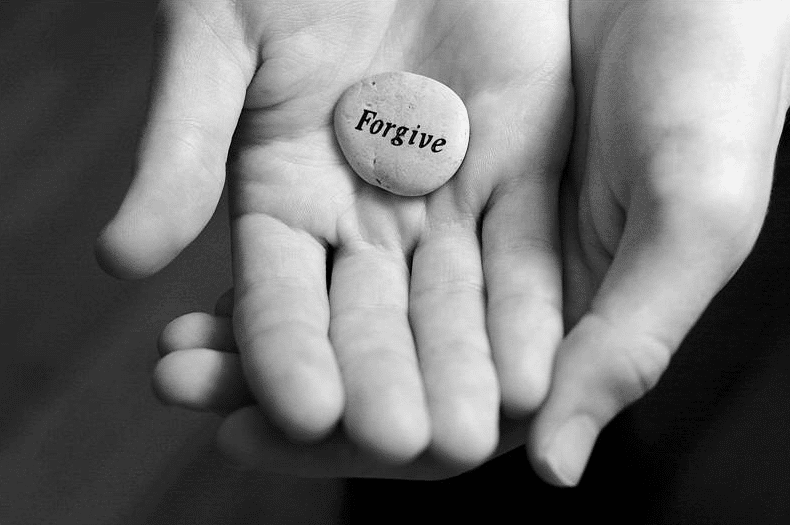How to Forgive Someone: A Step-by-Step Guide to Healing and Letting Go
How to Forgive Someone: A Step-by-Step Guide to Healing and Letting Go
Blog Article
Comprehending the Importance of Forgiveness in Healing Relationships
Mercy is typically seen as a straightforward act of letting go, yet its relevance in recovery relationships extends far beyond mere absolution. What remains to be uncovered is the profound effect mercy can have on private growth and communal harmony.
The Interpretation of Forgiveness
Although mercy is typically regarded as a basic act of letting go, its definition includes a complicated interplay of psychological and psychological processes. At its core, mercy is the mindful decision to release feelings of resentment or vengeance towards a private or group that has actually created injury. This procedure is not merely regarding discharging the transgressor; instead, it entails an extensive emotional improvement that can result in individual growth and healing.
Forgiveness is multifaceted, commonly defined by a person's interior battle to resolve their discomfort with the need for tranquility. It calls for identifying the misdoings committed, processing the connected feelings, and ultimately deciding to move forward without the problem of displeasure. This selection commonly requires a cognitive shift, where one reframes their understanding of the disobedience and the perpetrator, permitting empathy and comprehending to emerge.
Importantly, forgiveness does not imply excusing the habits or forgetting the violation; it is an intentional act that prioritizes emotional wellness. By specifying forgiveness in this fashion, we can value its duty in helping with much healthier connections and fostering psychological resilience, establishing the stage for much deeper expedition right into its benefits.
Psychological Advantages of Forgiveness
Mercy provides considerable psychological benefits that can exceptionally influence a person's psychological health and overall health. When an individual picks to forgive, they actively launch sensations of resentment, resentment, and rage, which can or else create a hefty emotional concern. This launch typically results in a decrease in tension and anxiety, promoting a sense of tranquility and emotional security.
Moreover, mercy cultivates an enhanced capacity for empathy and empathy. By understanding the perspective of the culprit, individuals can cultivate a deeper psychological resilience, which improves their ability to deal with future difficulties. This process not just improves emotional policy however also adds to a more positive expectation on life.
In addition, forgiving others can enhance one's self-confidence and self-worth. It permits individuals to redeem their individual power, breaking devoid of the negative cycles of victimhood - The importance of forgiveness. This newfound empowerment can lead to healthier psychological responses and stronger interpersonal partnerships
Forgiveness vs. Settlement
The distinction between forgiveness and settlement is essential in recognizing the dynamics of recovery partnerships. Forgiveness is an inner procedure in which an individual selects to allow go of animosity and adverse sensations towards a person who has triggered damage. It is mainly an individual trip, focused on emotional launch and self-healing, enabling one to relocate onward without bring the problem of previous grievances.
On the other hand, settlement includes restoring and recovering the relationship to a state of trust fund and shared regard. This procedure commonly calls for open communication, energetic participation from both parties, and a dedication to dealing with the underlying issues that caused the dispute. While forgiveness can happen individually, settlement requires the determination of both people to take part in discussion and job towards a shared understanding.
It is very important to note that mercy does not constantly cause reconciliation. An individual might forgive one more without deciding to recover the connection, especially if depend on has been irrevocably damaged or if the connection is regarded undesirable. Comprehending this distinction allows people to browse their feelings effectively and make notified choices concerning their partnerships.
Steps to Cultivate Forgiveness
Cultivating forgiveness is a purposeful process that involves a number of essential actions focused on facilitating psychological recovery. The primary step is recognizing the pain brought on by the infraction. Identifying one's feelings is important, as it permits people to process their emotions genuinely.
Next, assessing the case and recognizing its impact can give quality. This representation needs to consist of checking out the inspirations behind the wrongdoer's activities and acknowledging that everybody is official site fallible.
The 3rd action entails making a conscious decision to forgive. This decision is important, as it signifies a willingness to allow go of animosity and progress.
Consequently, revealing feelings in a useful way can be beneficial - The importance of forgiveness. Whether through journaling, speaking with a relied on friend, or looking for treatment, expression of emotions can help in the forgiveness journey
Real-Life Examples of Mercy

In an additional instance, a dense group of buddies dealt with a substantial rift after one participant accidentally shared a private trick. Instead of harboring resentment, the impacted close friend determined to forgive, understanding Get the facts the relevance of valuing the relationship over the blunder. This choice motivated open dialogue and inevitably enhanced their link.

Conclusion
In conclusion, forgiveness plays a critical duty in the recovery of partnerships by helping with the release of adverse feelings and fostering empathy. By comparing forgiveness and settlement, people can participate in a positive process that improves emotional wellness. Carrying out actions to grow forgiveness can lead to transformative end results, strengthening connections and advertising a supportive atmosphere. Inevitably, the method of forgiveness functions as a stimulant for individual development and the nurturing of healthier social dynamics.

Report this page